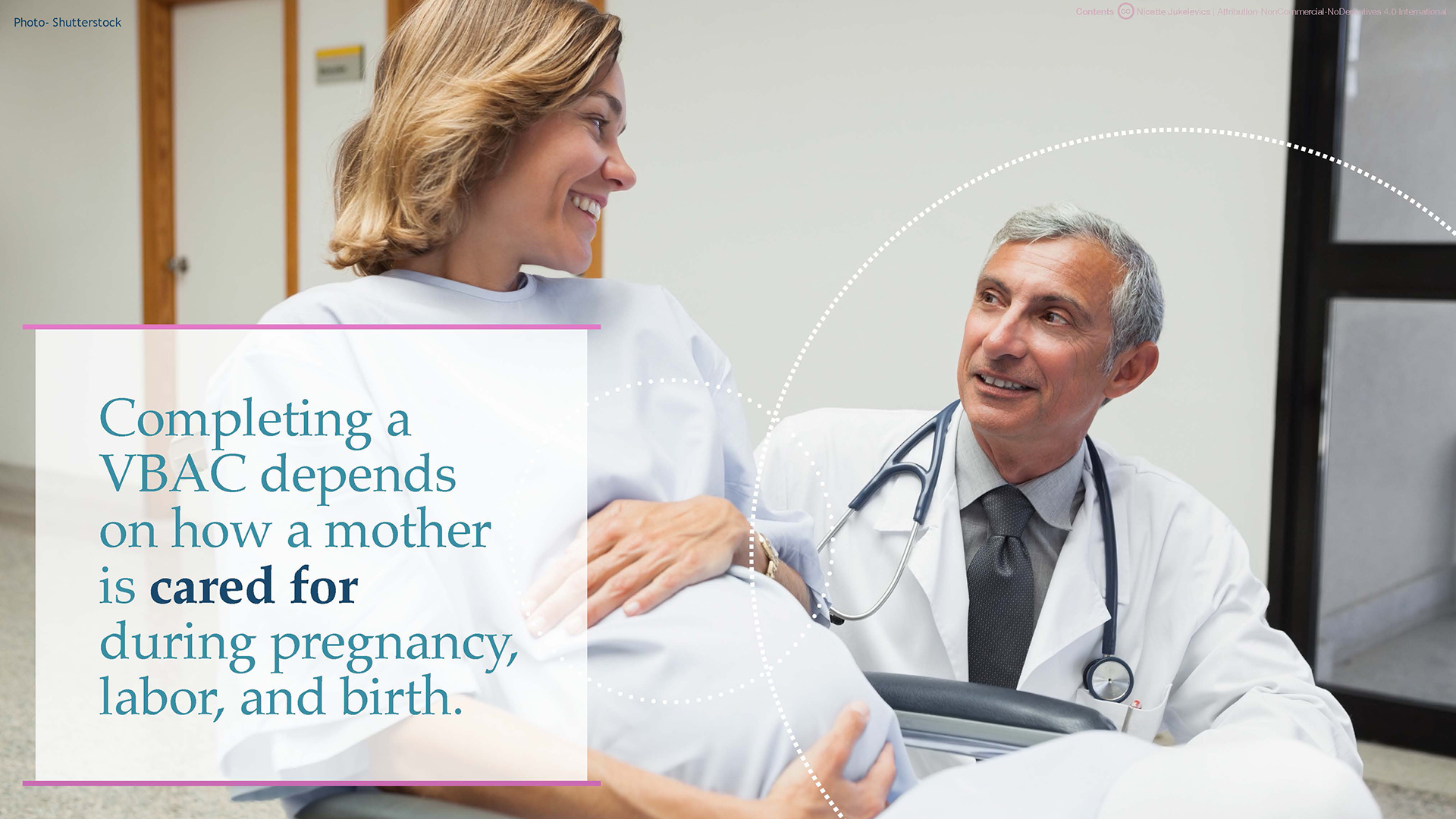For a mother who has had a prior cesarean birth, understanding the medical pros and cons of laboring for a VBAC is essential, but not enough. She is also likely to need psychological support, guidance for maximizing her chances for a vaginal birth, and access to community resources. It’s important to take the time to discuss her options and to find out what her needs are during prenatal visits.
Refer her to evidence-based educational resources for additional information and VBAC classes in her community.
Provide her with hospital informed consent/refusal forms for each procedure  that you would require her to sign-off on during her prenatal visits to give her the time to discuss them with her partner and make a thoughtful decision. This will also give her time to consider them and to give her the feeling of safety and sense of control she may not have had with her cesarean birth. Some caregivers have developed a check-list to complete during pregnancy.
that you would require her to sign-off on during her prenatal visits to give her the time to discuss them with her partner and make a thoughtful decision. This will also give her time to consider them and to give her the feeling of safety and sense of control she may not have had with her cesarean birth. Some caregivers have developed a check-list to complete during pregnancy.
Provide her with a list of birth doulas. Having a doula at her birth will increase her odds for a vaginal birth.
Respect the mother’s birth plan. Women who have had a negative cesarean birth and plan to labor for a VBAC will usually seek ways to make sure that this birth will take place in an emotionally safe environment. They will need to re-establish trust in their caregivers and place of birth. Reviewing her birth plan during a prenatal visit will increase her confidence in her ability to have a vaginal birth.
Involve her in making all the decisions about her care. Mothers look for caregivers who are sympathetic and supportive of their needs. Often, caregivers misinterpret this need for psychological safety as being a woman’s irrational need to be “in control”. Or a mother may be seen as having a “demanding birth plan.” Mothers who are involved in their own care have a more satisfying birth.
If a request is not possible to comply with, it may help to ask the mother more about it. Why it’s important to her and if she would consider other options that you can offer her.
Some mothers suffer from post-traumatic stress as a result of an unexpected cesarean. Because a newborn demands so much care and attention mothers often do not have the time to process these feelings and they can linger for a long time. Sometimes these feeling surface only when a woman becomes pregnant again and begins to think about the coming birth. Provide mothers with a list of psychotherapists who focus on birth-related trauma issues. 
Some mothers feel isolated and may be haunted by the “crazy” thoughts they have about their cesarean. Some feel they are “bad” mothers for having negative feelings and for not loving their baby as much as they think they should. A support group would give them a safe place to discuss their feelings without being judged. Contact the International Cesarean Awareness Network (ICAN) to find out about chapters in your community or to learn how to begin one.
Many caregivers and hospitals who provide care for VBAC have found a way to develop policies which provide safe care for VBAC and also honor a woman’s right to choose how she wants to give birth. You can find samples of these in Deciding If a VBAC Is Right for You: Hospital Policies that Support VBAC, Family-Centered Cesarean, and Informed Choice.





0 Comments